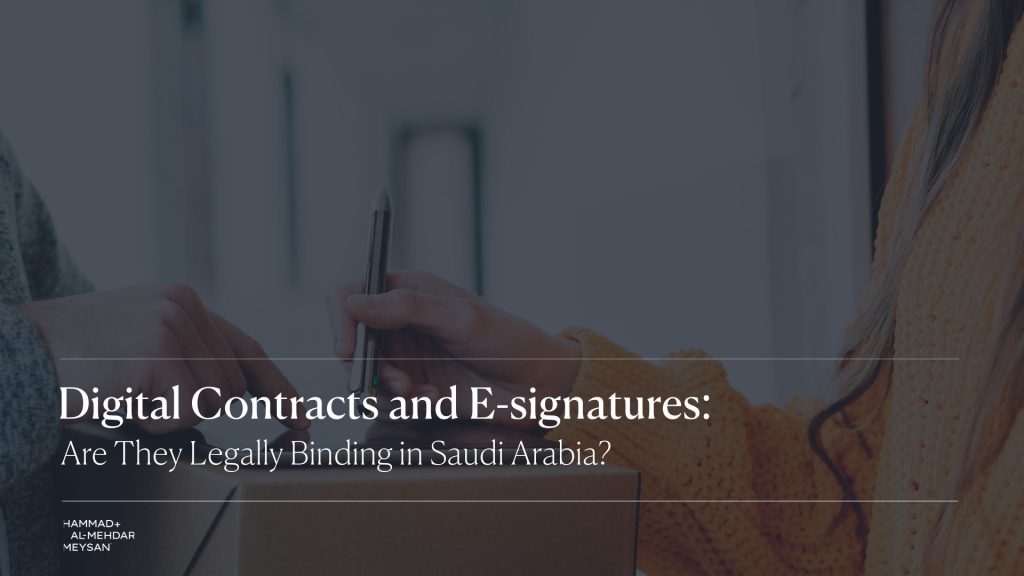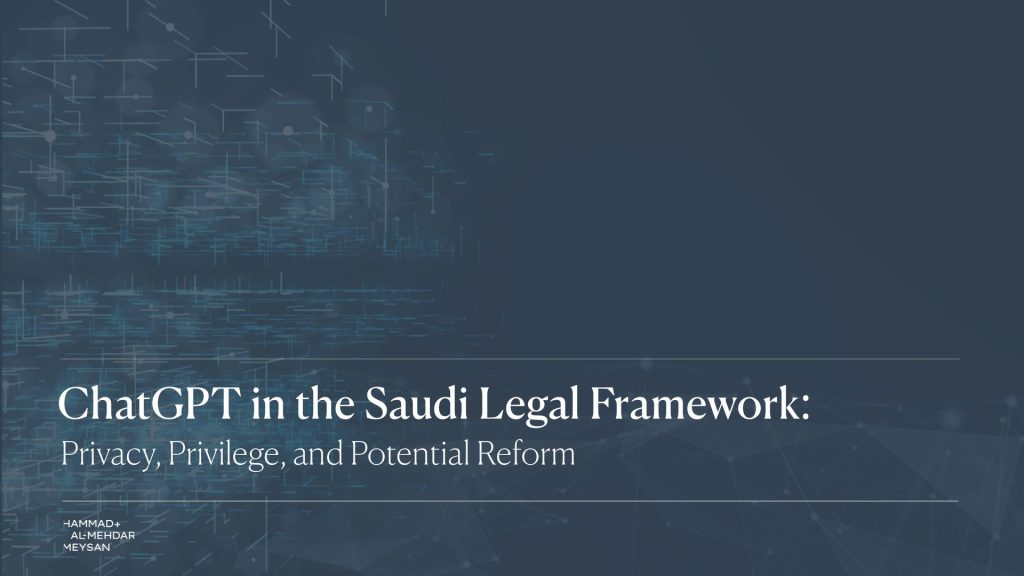
As Saudi Arabia accelerates its Vision 2030 agenda, digital transformation continues to reshape both public services and private sector operations. A critical pillar of this shift is the growing reliance on digital contracts and electronic signatures. These tools offer speed, convenience, and traceability, but many organisations remain uncertain about their legal enforceability.
This article provides an up-to-date overview of the legal framework, compliance requirements, and practical use cases for digital contracts and e-signatures in Saudi Arabia as of August 2025.
Legal Status of Electronic Signatures in Saudi Arabia
Electronic signatures are legally recognised in the Kingdom under the Electronic Transactions Law. The law treats electronic signatures and digital records as equivalent to their paper-based counterparts, provided they meet specific legal conditions.
To be valid, an electronic signature must:
- Be linked to the identity of the signer
- Demonstrate the intent to approve the content
- Be securely protected from tampering after signing
The law was further reinforced by executive regulations and updates issued by the Digital Government Authority (DGA), which oversees the National Root Certification Authority. This authority licenses and regulates certified digital signature providers, ensuring that digital certificates meet stringent security and authenticity standards.
Are Digital Contracts Enforceable?
Yes. Digital contracts are enforceable under Saudi law so long as they meet the general conditions for contract formation:
- Mutual consent between the parties
- A lawful subject matter
- Legal capacity of the signatories
- A valid offer and acceptance
The format of the contract, verbal, paper, or electronic, does not affect its validity unless specific legislation or regulations require a particular form (e.g. notarisation for certain real estate transactions or formal registration for franchise or agency agreements).
A digital contract that includes a legally valid electronic signature is fully binding and carries the same legal force as a traditional contract.
Oversight and Infrastructure
Saudi Arabia’s robust digital ecosystem is built on cooperation between key regulatory bodies:
- Digital Government Authority (DGA) – sets digital governance policies and standards
- National Cybersecurity Authority (NCA) – ensures the security of digital infrastructure
- Communications, Space and Technology Commission (CST) – oversees telecom and IT regulations
- Root Certification Authority – issues and manages digital certificates and ensures Public Key Infrastructure (PKI) compliance
Together, these bodies provide a secure environment for electronic transactions and promote trust in digital services.
Government-accredited providers offer qualified electronic signature solutions, which use encryption and digital certificates to verify the identity of signatories and protect the integrity of signed documents.
Common Use Cases
Electronic signatures are already being widely used across Saudi Arabia’s economy:
- Commercial Contracts: Agreements for supply, services, partnerships, and joint ventures
- Employment Agreements: Facilitating hiring, onboarding, and remote work arrangements
- Banking and Finance: Account openings, loan documentation, and internal approvals
- Government Platforms: Services such as GOV.SA, Qiwa, Muqeem, and Tawtheeq rely on digital signatures for submissions, verifications, and compliance tasks.
However, some documents, such as real estate title transfers, court submissions, and inheritance proceedings, may still require traditional notarisation or judicial approval in accordance with Sharia and administrative procedures.
Compliance and Risk Management
While the law supports digital signatures, businesses must proactively ensure compliance to reduce legal and operational risks. Best practices include:
- Using only certified providers authorised by the Root Certification Authority
- Establishing internal policies on when and how electronic signatures should be used
- Providing staff training on legal requirements, risks, and proper procedures
- Storing signed contracts in tamper-proof, auditable formats
- Conducting regular audits to ensure compliance with applicable laws and standards
Failure to implement these safeguards could expose businesses to disputes around authenticity, consent, or enforceability, especially in high-value or sensitive transactions.
Final Thoughts
Saudi Arabia has firmly established the legal validity and enforceability of digital contracts and electronic signatures. Supported by a comprehensive regulatory ecosystem and a rapidly maturing digital infrastructure, electronic transactions are not only recognised, but they are also increasingly encouraged.
For businesses, embracing these tools represents more than just a compliance exercise. It is a strategic advantage that enables faster decision-making, reduced costs, and seamless collaboration across borders.
To fully realise these benefits, organisations must align their internal processes with national standards, invest in secure technologies, and stay informed of legal developments. In doing so, they can participate confidently in the Kingdom’s digital future, without compromising on legal certainty or contractual integrity.









